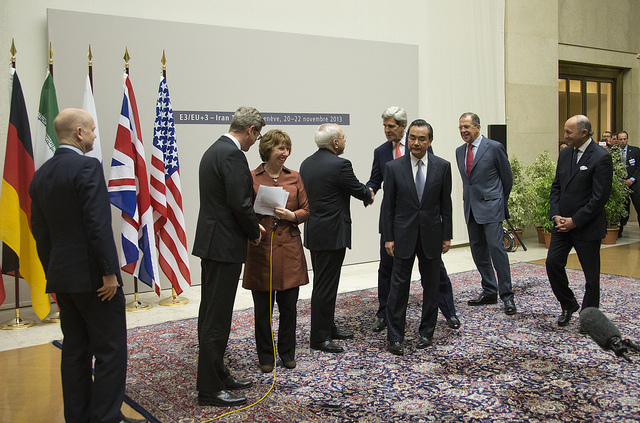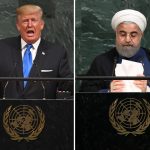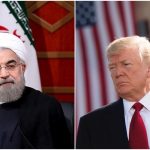by MohammadHassan Khani
Although the Nov. 24 Geneva deal between Iran and the 6 world powers known as the P5+1 was centred around the nuclear issue, its implications go beyond that. It pushed Tehran and Washington one step closer towards a normalization of relations.
Post-revolutionary Iran has long lived with the conviction that the US knows Tehran is not willing to develop nuclear weapons and is using that excuse as a pretext to pressure Iran and isolate it with the possibility of overthrowing the Islamic state. But now, for the first time, Iran has decided to look beyond regime change as an US goal and entertain the possibility that the West’s real concern is proliferation.
That might be a good and relatively convincing answer to the big change in Iran’s stance towards the West. The Iranians decided to do their best to talk as directly as they can, and to behave with maximum possible transparency to remove any doubt and scepticism in the minds of their adversaries in convincing them that “we don’t want the bomb and we don’t need the bomb”.
For Iran, this engagement seemed to be a good way to test the honesty and sincerity of the west. That partially explains the logic of the sequence of events in Iran during the past six months: the people chose Hassan Rouhani as their President, Rouhani appointed Mohammad Javad Zarif as the Foreign Minister, and the Supreme Leader decided to endorse Rouhani and his nuclear negotiation team without being optimistic about the outcome of the talks. The last two events happened with one mandate: to test the trustworthiness and intentions of the west through diplomacy, Persian style.
From Iran’s perspective, this new approach is certainly worth trying. If successful, Iran and the West can put a long history of enmity behind them and open a new chapter in their relations: a win-win scenario. If unsuccessful, the West will not be in a position to blame Iran anymore; the Iranians can claim domestically, regionally, and internationally that they made their best effort but the US and its allies were not honest and sincere in engaging and abandoning their hostile policy of regime change.
Iran’s strategy involves altering the language through which they have been talking to the world, being direct and consequently avoiding further misunderstandings and unnecessary confrontations. After more 34 years of silence, Zarif’s private bilateral meeting with US Secretary of State John Kerry and Rouhani’s taboo-breaking phone call with President Obama in New York proved that diplomacy is working. Iran and the West can now understand each other’s language and are capable of forging agreements with the right amount of effort.
Iran, the West and the US in particular share a number of common interests that need to be examined and realized. Iraq and Afghanistan are obvious points of rapprochement. Nouri al-Maleki and Hamid Karzai must have felt great relief in seeing Zarif and Kerry smiling at each other and shaking hands. The post-war Iraq and Afghanistan have been painfully caught between Iran and the US and the leaders have been hoping for Tehran and Washington to set aside their differences specifically on the issues related to their countries. Other nations that felt the same sense of relief include Japan, Turkey, India, South Korea and many other Asian and European countries that have been suffering from the hostility between Iran and the US.
Fighting against extremism, which is now a shared enemy in Syria, can also be another area of communality between Iran and the US. The above argument doesn’t mean that the two sides are going to be cordial partners or close allies overnight. But both sides can downgrade the degree of their hostility from being blind foes to responsible players and rational rivals.
The West and the US must accept that the time for keeping client dictatorial regimes that follow the West’s commands for the sake of staying in power has expired. Now they must deal with new states in the Middle East whose legitimacy is based with their own people, a people who crave independence, integrity and respect while also being rational enough to identify areas of common interest that will forge a mutual respect for the West. Iran can be a viable partner in this respect.
To turn the historical US-Iran diplomatic achievements of the past few months into desirable, enduring results, it is essential that the US avoid the traps of short-sighted policies in going forward. The Obama administration must do its best to encourage Congress to abandon its habit of regarding Iran as a definite enemy. This requires a new US strategic map in which Iran, with all its rich cultural, economic and geopolitical attributes, is regarded as a responsible rational player that can fufill a positive and constructive role in the region and beyond.
In developing a new regional policy that includes Iran on its side, the US must demonstrate its good intentions and honesty towards Tehran by recognizing its inalienable right to use nuclear energy for peaceful purposes, including its right to enrich uranium.
Pursuing old policies and talking to Iran with the language of the past will restore Iran’s mistrust of the US. In doing so, the U.S. would also forfeit a historical opportunity to reach a sustainable reconciliation with Iran and the progressive political Islam it represents. The price of such a mistake would be high for all sides; the scepticism and cynicism in Tehran would deepen and become more widespread, freeing up room for those who have always doubted US intentions. A new generation of anti-West and anti-US revolutionaries would also be unleashed.
The road ahead is surely long and rocky; passing through it requires prudence, patience and long-term vision. But the fruits of an US-Iran rapprochement are far greater than the risks involved in getting there. If this effort is successful, an unnecessary conflict can be transformed into opportunities for bringing about peace, security and prosperity to a volatile region suffering from decades of war, violence and instability.
— Dr. Khani is a graduate of the Peace Studies Department at Bradford University and currently a staff member of the Faculty of Political Science & Islamic Studies at Imam Sadiq University, Tehran. He is also a Research Fellow at the Institute for Political and International Studies (IPIS). He can be reached by email here and here.






The article is absolutely correct, but it is only wishful thinking of independent thinking Intellectuals. It’s almost like you have no idea whats going on in congress or senate. Most of them are hell bent on humiliating and belittling Obama, portray him as inefectual. Not to mention that hostility towards revolutionary Iran is the default setting with many having constructed their entire political careers on this one issue, not to mention the enermous pressure from lobby groups. All I hear on US tv is how Iran has been given “everything” for very little in return by experts, so the brain washing machine is in over drive undermining yet again this vry admirable Obama initiative. So as true as this article, this entire endevour is unfortunately rigged to fail. So no matter how many of these articles are written on posts like this or “Al-monitor” or the like, unless an unbiased intellectual discourse takes place in mainstream media, nothing will change, and breaks my heart, but unfortunately it’s true
So, the world’s leading executioner (in relation to population size), a regime that has executed tens of thousands of Iranian men and women, which has murdered hundreds of Bahais simply for not renouncing their religion, which proscribes stoning to death for adultery, which considers homosexuality to be punishable by death, and prescribes punishments such as floggings and limb amputation represents “progressive political Islam”? Good to know.
global citizen, I have to agree with your analysis. I have hopes for the up & coming Boycott Divestment Sanctions movement though, which I think is going to force that discussion into mainstream. This is a crisis for our country but we’ve been through a lot in the past and have kept moving forward. The McCarthy era must have seemed pretty bleak and unyielding at the time, black apartheid & civil rights, the early Vietnam War protests. I think we’ve got what it takes to forge a healthier relationship with Israel as well as with Iran.
Hi Brenda, I was wondering if you would be supportive of boycott, divestment, and sanctions against the Islamic Republic of Iran?
To Amir, Re: Brenda’s comment re:B.D.S., Isn’t that what’s taking place today with Iran, sanctions and boycott? Isn’t Israel seeking more tougher sanctions, perhaps the same type or worse than what the Palestinians live under today?